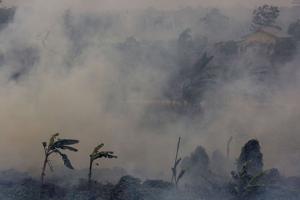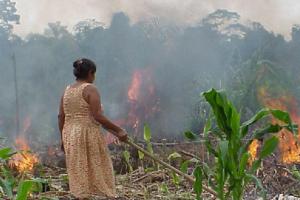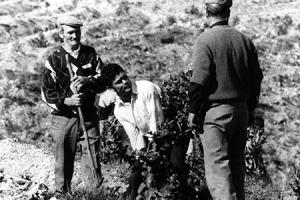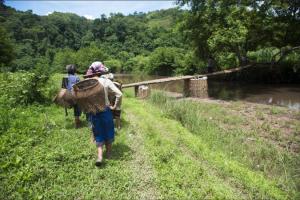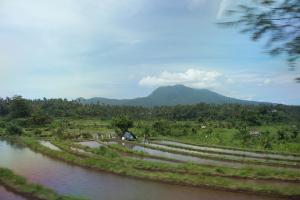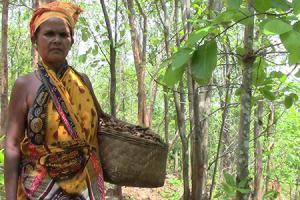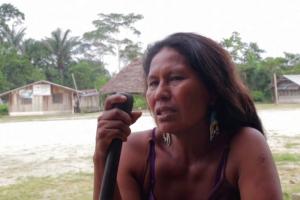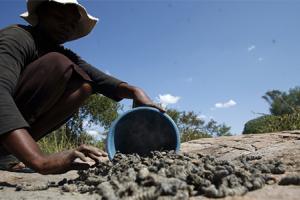Seeds of Hope
“What are the solutions to forest destruction?” “What are the alternatives?” Questions like these are often raised to squash possible debate that could lead to real solutions to deforestation and climate chaos. The way forward starts with ending the assault on forest peoples and their ways of life, and learning about their relationships with their territories. For generations, forest-dependent communities have lived in and with forests, and have protected them.
Despite that most forest fires in Indonesia started within expanding oil palm plantation concession areas, companies are not being persecuted. (Available in Indonesian).
Fires in the Amazon are occurring more frequently and with greater intensity. But who is really burning the forests?
In 1989, there was a war in the valley of Lila, Portugal. Hundreds of people gathered to destroy 200 hectares of eucalyptus, fearing that the trees would rob them of their water and bring fire.
In solidarity with the International Day of Peasant Struggle. A day to remember, emphasize and mobilize together against the persecution and violence that peasants suffer on a daily basis around the world.
Systems of community organization rooted in sacred beliefs and concepts guide relations in Bali, Indonesia, and help defy agribusiness and mega-tourism.
India’s programme to compensate for the destruction of forests for development projects is routinely setting up monoculture tree plantations on community commons. Women, who are mostly affected, are at the centre of its resistance.
The voices and stories of forest-dependent women are often rejected, unheard or silenced, which makes it easier for companies to grab community land. But what happens when they start to raise their voices?
Over the past few years, the mopane worm population - found in isolated patches of dense forests in the driest parts of Zimbabwe, like in the Mazwi village - has been diminishing, threatening local livelihoods and food sovereignty.
